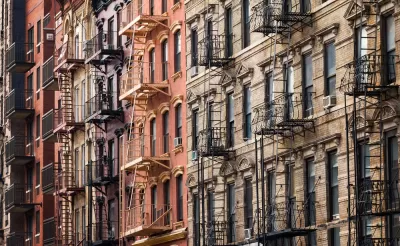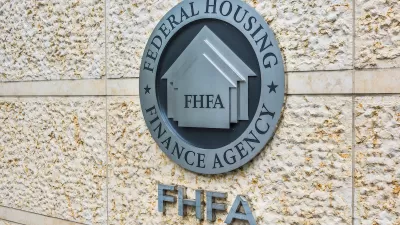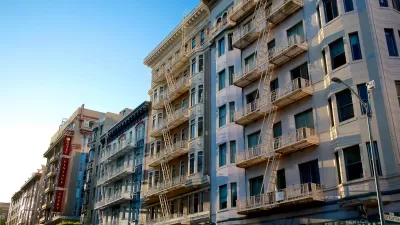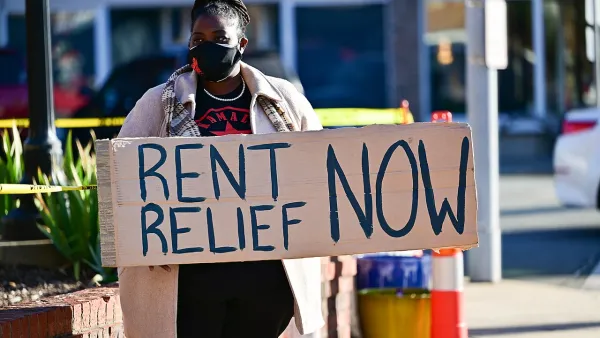Even as the city pursues new affordable housing, lax enforcement of rental regulations is leading to rising costs and evictions.

Like other big cities facing affordable housing crises, New York is steadily losing its supply of rent-stabilized units to deregulation. And, Daniel Geiger writes for Crain's New York, systemic fraud may play a substantial role in that decline.
Recent audits by the city and class-action lawsuits against major landlords reveal a pattern of dubious renovation expenses that enable property owners to raise prices on rent-stabilized apartments, Geiger reports. Over the past 26 years, around 167,000 rent-stabilized units—that officials know of—have been deregulated, fraudulently or not, through programs that allow for rent increases. "That's roughly 50,000 units more than Mayor Bill de Blasio's signature affordable-housing initiative aims to create over 12 years," Geiger notes.
In New York, laws permitting landlords to cover major repair costs by raising rents above regulated levels were enacted in the 1970s to encourage property maintenance. But most cities don't have systematic or proactive enforcement, relying on tenant complaints and lawsuits to bring violations to light. As a result, fraud is rampant: “Loopholes and lax oversight practically invite owners to pull units out of regulation," Geiger writes. Or as one attorney put it: "You have to be nuts not to be breaking the law, because the chances of getting caught are so slim."
FULL STORY: Landlords are exploiting a key loophole to raise rents on thousands of apartments

Maui's Vacation Rental Debate Turns Ugly
Verbal attacks, misinformation campaigns and fistfights plague a high-stakes debate to convert thousands of vacation rentals into long-term housing.

Planetizen Federal Action Tracker
A weekly monitor of how Trump’s orders and actions are impacting planners and planning in America.

Chicago’s Ghost Rails
Just beneath the surface of the modern city lie the remnants of its expansive early 20th-century streetcar system.

Bend, Oregon Zoning Reforms Prioritize Small-Scale Housing
The city altered its zoning code to allow multi-family housing and eliminated parking mandates citywide.

Amtrak Cutting Jobs, Funding to High-Speed Rail
The agency plans to cut 10 percent of its workforce and has confirmed it will not fund new high-speed rail projects.

LA Denies Basic Services to Unhoused Residents
The city has repeatedly failed to respond to requests for trash pickup at encampment sites, and eliminated a program that provided mobile showers and toilets.
Urban Design for Planners 1: Software Tools
This six-course series explores essential urban design concepts using open source software and equips planners with the tools they need to participate fully in the urban design process.
Planning for Universal Design
Learn the tools for implementing Universal Design in planning regulations.
planning NEXT
Appalachian Highlands Housing Partners
Mpact (founded as Rail~Volution)
City of Camden Redevelopment Agency
City of Astoria
City of Portland
City of Laramie





























